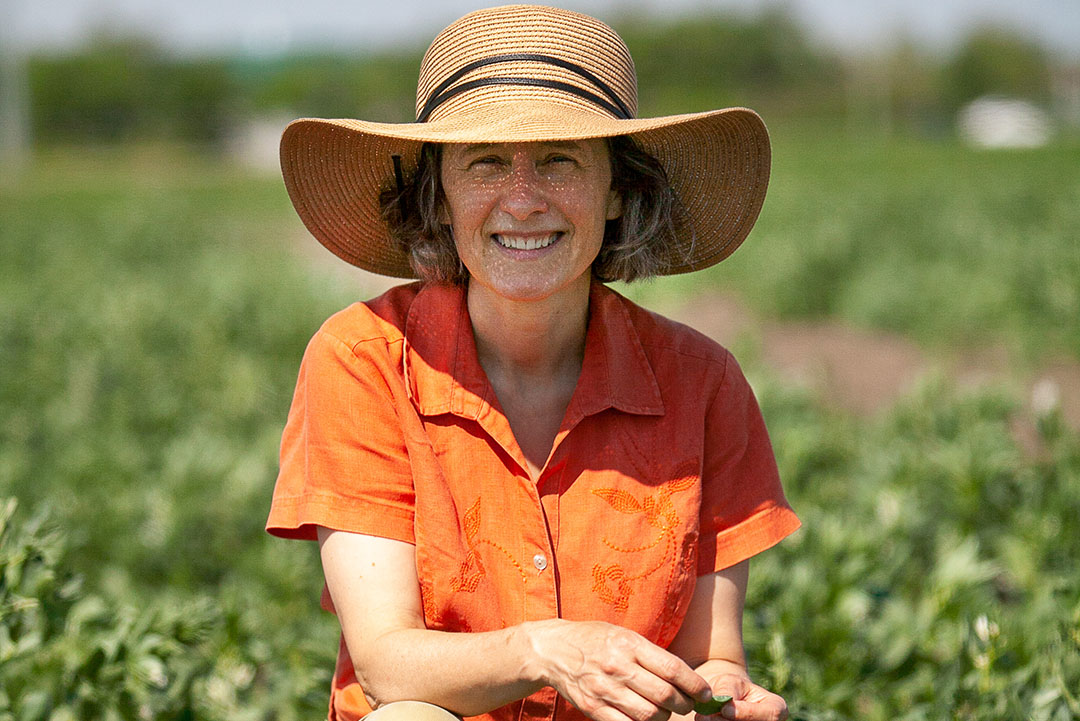Editor’s Note: This is Part 1 of a four-part series profiling this year’s winners of the Canadian Plant Breeding Innovation Scholarships, which enjoys the support of 14 great sponsors this year. See below for a full sponsor list!
Stanley Adobor has literally made a long journey to get where he is as a PhD student at the University of Saskatchewan.
Originally from Ghana, he grew up in a farming community, where his love of agriculture began. After graduating from the University of Ghana with a major in crop science, he left West Africa for the United Kingdom, where he worked on his master’s degree. He now finds himself on yet another continent — his coldest yet — working on a PhD and researching stemphylium blight in lentil.
This fungal disease is a threat to most of the major lentil-growing regions like Bangladesh, India and Canada.
Breeding for improved resistance is one of the major breeding objectives for lentil at the University of Saskatchewan. Adobor’s research involves developing an understanding of resistance mechanisms in wild lentil and developing molecular markers that plant breeders can use to select potential resistant lines, in order to create varieties with resistance to the disease.
“The coats of seeds of lentil plants that have been infected with stemphylium blight are much more difficult to dehull during the milling process, leading to both physical and economic losses. One of Stanley’s research hypotheses involves a completely new approach that uses metabolomics, a mass spectrometry technique to identify compounds that are associated with stemphylium infection,” says Albert Vandenberg, Adobor’s supervisor.
“The future path to successful innovation in plant breeding will be driven by those plant breeders who engage in multiple disciplinary approaches for developing and applying new tools and techniques to genetic improvement — Stanley will be a successful contributor to the innovation pathway.”
Adobor, 37, says he hopes to potentially stay in Canada after he completes his PhD.
“When I first told people back home that I was moving to Saskatchewan they said, ‘What? It’s so cold there! Why would you want to live in Saskatchewan?'” he says with a laugh. “Canada has welcomed me, and I have met so many wonderful people here. I would love to give back after what Canada has offered me all these years. To live in such a wonderful place and do this kind of work is a dream come true.”
Our 2021 Scholarship sponsors are:
























